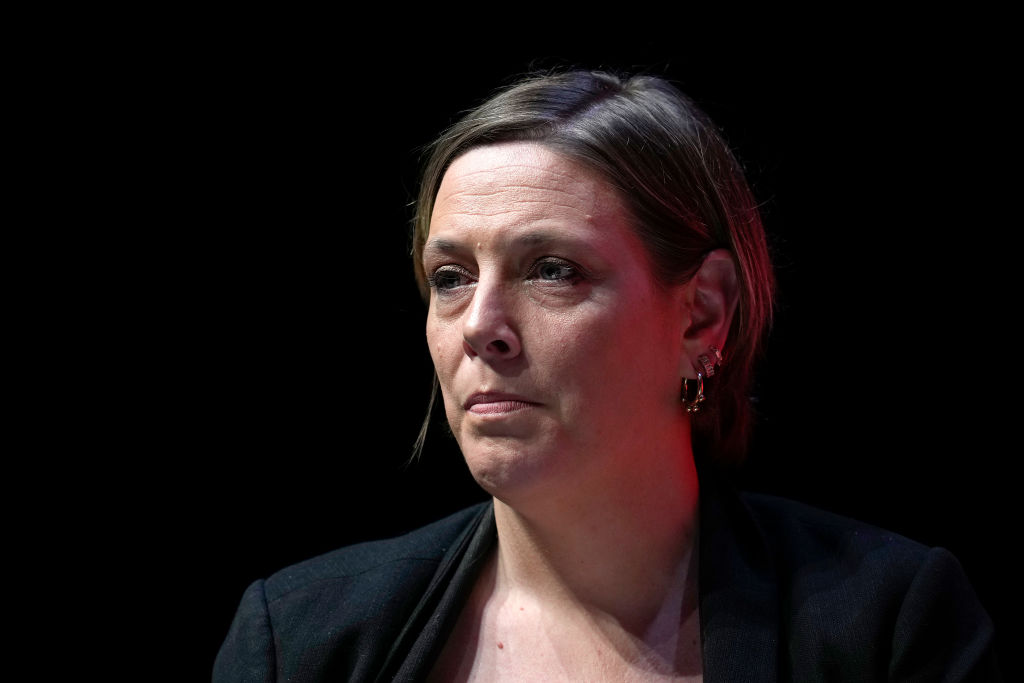Remember when feminists rallied behind the mantra ‘Believe All Women’? It was back in 2017, at the peak of the #MeToo movement that rightly brought down serial sex offenders such as film producer Harvey Weinstein. But then the net was cast more widely, tripping up men like comedian Aziz Ansari for boorish behaviour on a date and allowing women who had been touched on the leg to label themselves victims. Critics, like me, who urged against such blurred lines, were told that women do not lie about being victims of sexual assault. I had to shut up and believe.
But the years since have shown that feminists themselves have double standards when it comes to believing victims. Some women are to be taken at their word, while others are to be forever doubted. White women in London or California are believed; Jewish women attending music festivals in southern Israel are not. Middle-class women who mix with politicians and journalists are believed; working-class girls from northern towns are not. Women who point the finger at powerful white men are taken seriously; those who accuse Pakistani-heritage Muslim men are not.
This double standard has allowed Britain’s grooming gangs to act with impunity. Women like Fiona Goddard, exploited and repeatedly raped by a gang of Pakistani-heritage men as a teenager living in children’s homes in Bradford in the late 2000s, or Ellie Reynolds, drugged and gang-raped whilst a schoolgirl in Barrow, Cumbria, not only had to fight for justice, but struggled to be believed. When Reynolds first reported her abuse, the authorities tried to prosecute her, accusing her of blackmailing the men she accused – charges later dropped due to lack of evidence. Goddard recalls being treated like a ‘child prostitute’ and says police officers took the view that she was ‘street-wise’ and could look after herself.
Tragically, Fiona, Ellie, and thousands of other girls from cities such as Oxford and Bradford were, it seems, the wrong kind of victims. White, working-class girls garnered little media interest, and few feminists rallied to their cause. The police officers and social workers who should have been protecting them treated them as liars, trouble-makers, or collaborators in their own exploitation. The identity of those accused was a major reason why officials refused to take the girls’ claims seriously: they feared that reporting and investigating Pakistani-heritage men would stir up community tensions and lead to them being branded racist.
Things are supposed to be different today. Earlier this year, after weeks of obfuscation, the government finally announced a national inquiry into the grooming gangs. Both Goddard and Reynolds joined the victims’ liaison panel to ensure the voices of those who had endured abuse were heard. However, as the pair have made clear in their resignation letters this week, they are still struggling to have their concerns taken seriously.
The inquiry is still without either a timetable or a chairman. Goddard and Reynolds claim that they are – yet again – being silenced by ‘condescending and controlling language’ used towards them. Reynolds feared the Home Office was downplaying the ethnicity and religious background of perpetrators. Both are concerned that those put forward as chairman come from social work and policing – two professions involved in covering up the scale of abuse. In her letter, Goddard describes how ‘the secretive conduct and conditions imposed upon survivors has led to a toxic, fearful environment.’ Reynolds said she felt the inquiry had become ‘less about the truth and more about a cover-up’.
Surely, feminists who have previously urged us to ‘believe all women’ should now be defending Goddard and Reynolds, taking their concerns seriously and getting on with appointing a judge who has the support of victims to lead the national inquiry. Alas, no. Safeguarding minister Jess Phillips has, instead, denied claims of a cover-up. She insists the government remains ‘committed to exposing the failures’ that led to ‘these appalling crimes’. In a letter to MPs delivered yesterday, Phillips even had the gall to claim, ‘We are committed to ensuring that the survivor perspective remains at the heart of the process.’ Just not the perspective of Goddard and Reynolds then.
Grooming gangs thrived in Britain because the abused girls were the wrong kind of victims and their Pakistani-heritage rapists were the wrong kind of perpetrators. Now, as adults, these women continue to be the wrong kind of victims, wanting to lift the lid on the wrong kind of perpetrators. Their treatment continues to shame Britain.








Comments